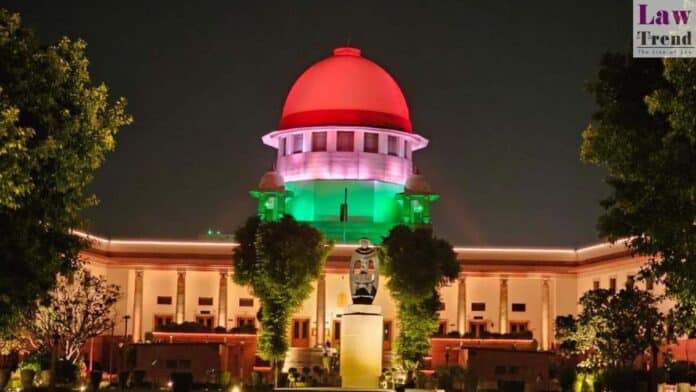In a significant development, the Supreme Court on Tuesday postponed the final hearing of a public interest litigation (PIL) seeking to prohibit convicted individuals from forming or leading political parties. The hearing has been deferred to August 11 by a bench led by Chief Justice Sanjiv Khanna and Justice Sanjay Kumar.
The PIL, initiated by lawyer Ashwini Upadhyay in 2017, aims to prevent convicts from becoming office-bearers in political parties during their disqualification period. This move follows concerns raised by the bench regarding the involvement of convicted individuals in electoral processes and the potential impact on the integrity of democratic institutions.
Chief Justice Khanna, who is slated to retire on May 13, expressed his reluctance to reserve judgment on the matter, prompting the postponement. The bench has invited all parties involved to submit their written arguments in advance of the rescheduled hearing.
During earlier sessions, the justices highlighted the paradox of allowing convicts, already barred from contesting elections, to influence candidate selection and party leadership, questioning, “How can the purity of democracy be maintained?”
The PIL challenges the constitutional validity of Section 29A of the Representation of the People Act, 1951, which empowers the Election Commission to register political parties. The petitioner argues that this section is “arbitrary, irrational, and ultra-vires” to the Constitution, advocating for the Election Commission’s authority to both register and deregister political parties as necessary.
The plea also calls for guidelines to be established by the Election Commission to decriminalize the electoral system and promote internal democracy within parties, echoing proposals by the National Commission to Review the Working of the Constitution.
Highlighting a troubling statistic, the petition notes that 40% of legislators have either been convicted or are undergoing trials, underscoring the resistance to political probity and the urgent need for reform.
The petitioner has pointed out several high-profile political leaders who, despite convictions or ongoing trials, continue to hold significant political influence, further complicating the landscape of Indian politics.
The proliferation of political parties, facilitated by Section 29A’s minimal requirements for forming a party, was also criticized in the petition, which referenced a 2004 proposal by the Election Commission to amend this section to better regulate the registration processes of political parties.




